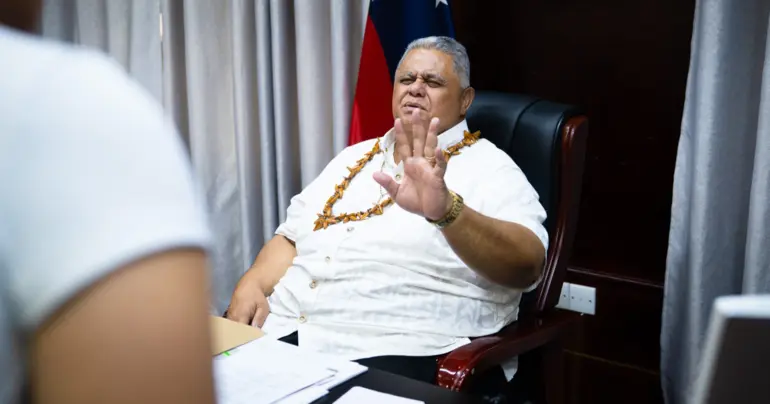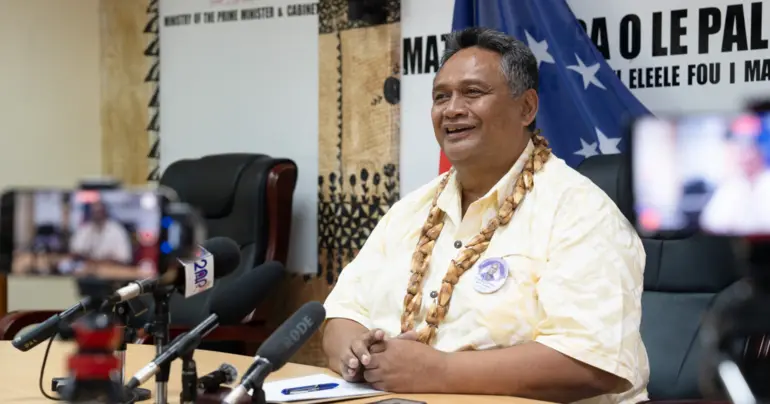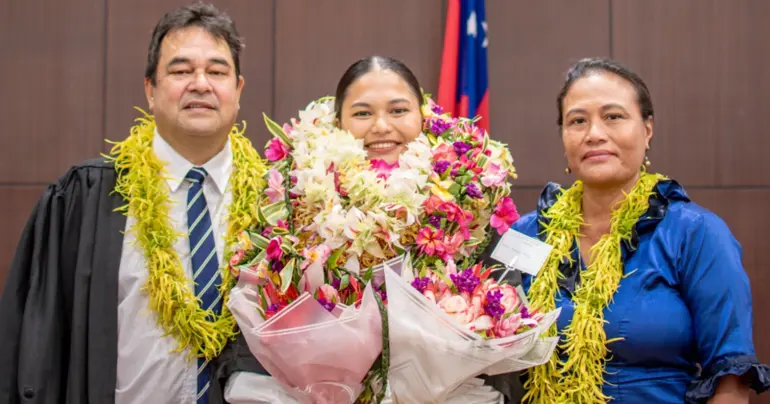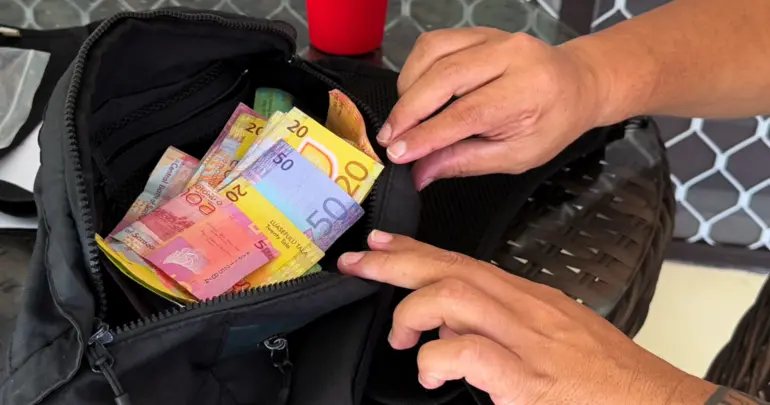Samoan children caught in adoption nightmares
 By Andrina Elvira Burkhart
•
20 May 2025, 7:00PM
By Andrina Elvira Burkhart
•
20 May 2025, 7:00PM
Close to 1000 Samoan children are adopted overseas, and some are ending up working as slaves in homes where they should be looked after and subjected to physical and sexual abuse.
Kris Teikamata, a frontline social worker at a local community agency called Oranga Tamariki, told the Pacific Media Network that she worked closely with numerous young women between 2019 and 2024, many of whom endured prolonged physical and sexual abuse within their own families and trusted institutions.
"They're incredibly traumatised because it's years and years and years of physical abuse, physical labour and and a lot of the time, sexual abuse, either by the siblings or other family members. They were threatened, they were coerced and they had no freedom,” she told PMN.
“When I met each girl, [by then] 17, 18, 19 years old, it was like meeting a 50-year-old. The light had gone out of their eyes. They were just really withdrawn and shut down."
In one case a church minister raped his adopted daughter and got her pregnant.
Teikamata and her team helped 10 Samoan teenagers who had managed to escape their homes, and slavery - two boys and eight girls - with health, housing and counselling. She fears they are the tip of the iceberg, and that many remain under lock and key.
"They were brought over as a child or a teenager, sometimes they knew the family in Samoa, sometimes they didn't - they had promised them a better life over here, an education and citizenship.
"When they arrived, they would generally always be put into slavery. They would have to get up at 5, 6 in the morning, start cleaning, start breakfast, do the washing, then go to school and then after school again do cleaning and dinner, and the chores - and do that every day until a certain age, until they were workable.
"Then they were sent out to factories in Auckland or Wellington, and their bank account was taken away from them and their EFTPOS card. They were given $20 a week. From the age of 16, they were put to work. And they were also not allowed to have a phone - most of them had no contact with family back in Samoa."
Nothing stopped the abusive families from being able to adopt again and they did, she said. A recent briefing to ministers reiterated that New Zealanders with criminal histories or significant child welfare records have used overseas courts to approve adoptions, which were recognised under New Zealand law without further checks.
"When I delved more into it, I just found out that it was a very easy process to adopt from Samoa," she said.
"There are no checks, it's a very easy process. So about a thousand kids [a year] are being adopted from Samoa today, it's such a high number, whereas other countries have checks or very robust systems. And it's still going on."
As children, they could not play with friends and all of their movements were controlled.
Oranga Tamariki uplifted younger children, who were sometimes siblings of older children who had escaped. "The ones that I met had escaped and found a friend or were homeless or had reached out to the police."
When they were reunited with their birth parents on video calls, it was clear they came from loving families who had been deceived, she said.
While some adoptive parents faced court for assault, only one has been prosecuted for trafficking.
Government, police and Oranga Tamariki were aware and in talks with the Samoan government, she said.
New Zealand-based body, Adoption Action member and researcher Anne Else said several opportunities to overhaul the 70-year-old Adoption Act had been thwarted, and the whole legislation needed ripping up.
"The entire law needs to be redone, it dates back to 1955 for goodness' sake," she said. "But there's a big difference between understanding how badly and urgently the law needs changing and getting it done.
"Oranga Tamariki are trying, I know, to work with, for example Tonga to try and make sure that their law is a bit more conformant with ours, and ensure there are more checks done to avoid these exploitative cases."
A meeting was held between New Zealand and Samoan authorities in March. A summary of discussions said it focused on aligning policies, information sharing, and 'culturally grounded frameworks' that uphold the rights, identity, and well-being of children, following earlier work in 2018 and 2021.
 By Andrina Elvira Burkhart
•
20 May 2025, 7:00PM
By Andrina Elvira Burkhart
•
20 May 2025, 7:00PM











